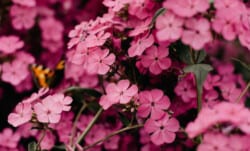What Are We Doing About Period Poverty?
Welcome to #TRVSTLOVES. We curate news, ideas, and inspiration from across the world that demonstrate how real action can accomplish a positive social impact. This month we’re talking about the very topical subject of period poverty. It's not really good enough that we live in a world where women are unable to meet their basic hygiene needs. We must continue to break the stigma around menstruation to ensure we can have sensible conversations about period poverty.
African girls miss out on education due to period poverty

Period poverty can have so many negative knock-on repercussions. ActionAid says that one in ten girls in Africa miss school because they don’t have access to sanitary products. It’s devastating that these young women miss out on an essential education: and it’s not a one-off incident either, they're absent from school every single month. Just think about how detrimental this can be when it comes to learning. ActionAid has developed some great initiatives to address the situation, including educating girls about their periods, giving out emergency menstrual products and training women to make their own sanitary pads. As conversations about periods become "normal" we hope this education will be passed down to the next generations who won't have to suffer the same indignities and injustice.
The UK: one in ten unable to afford sanitary wear
In the United Kingdom, research has shown that one in ten girls have, at some point in their lives, been unable to afford sanitary wear. Also, one in ten girls said they had to improvise sanitary wear due to affordability issues. The stats are pretty shocking, aren't they? Just last month the UK government launched its sanitary product scheme to help combat period poverty. The scheme will allow schools and colleges to order sanitary products (including eco-friendly options) to give out to women as required. The campaign was led by teenager Amika George, we think her Ted Talk is well worth a listen.
“Periods are not an emergency”

“Periods are not an emergency”. What a great line from Gabby Edlin, founder of Bloody Good Period. Whilst working at a drop-in centre for asylum seekers, Gabby asked if she could bring in sanitary items for some of the women who had nothing. She was told that they were only provided in “emergencies”. Let that sink in for a moment: sanitary items are provided only in "emergencies". An incredible response for donated sanitary items on social media followed, and now Bloody Good Period provides period products to 40 drop-in centres in the UK making a huge difference to the lives of many women.
The Menstrual Movement are doing great things

It’s always reassuring and heartwarming to discover companies that are making real change happen. The Menstrual Movement was founded in the US by two 16 year-olds back in 2014. There are some great initiatives to explore from this company, including period chapters. Chapters distribute menstrual products to people in need in their community, run educational workshops, and work on policy change. They encourage people to get involved, so if period poverty is a subject you're interested in, you can work directly with them to set up your own chapter or use their materials and guidance if you’re outside of the US.
Nigeria’s reusable menstrual pads enterprise
Last but absolutely not least, Lolo Cynthia is a name worth remembering. She founded the reusable menstrual pad revolution after teaching 250 girls in southwest Nigeria how to make their own reusable menstrual pads. Obviously, this ticks so many positives boxes: she empowers women to manage their own periods, teaches new skills, and of course, there’s the eco-friendly nature of reusable pads. Lolo’s blog LoloTalks is really worth a read too - it covers a wide range of female issues which are often viewed as taboo subjects. As with many taboos, the more we talk about them, the more we normalize them. And it's time for periods to be seen as normal.
Sam produces our regular #TRVSTLOVES where she seeks out inspiration, news, and ideas from across the globe that both highlight and celebrate how actions can make for social and environmental change.
Sam is passionate about seeking out small businesses that are implementing remarkable and exciting projects to tackle the climate crisis; she enjoys exploring how their innovation will help change the future of our world.
A degree in English Literature from the University of Southampton has given Sam the research expertise to share and contextualize stories around innovative projects, legislation, and changemakers.

